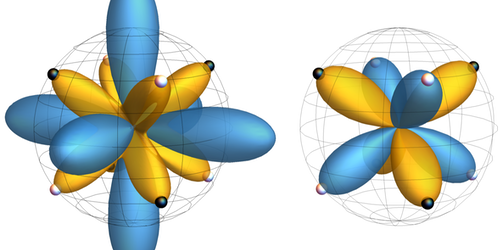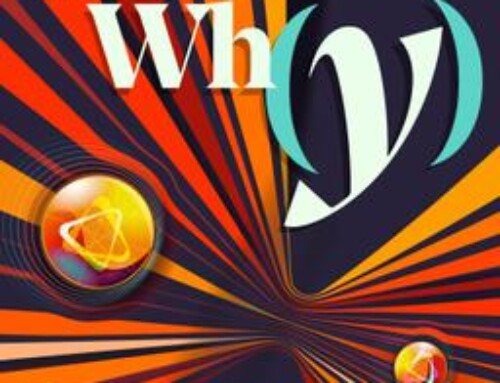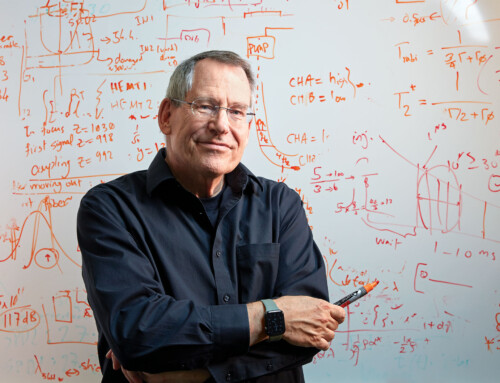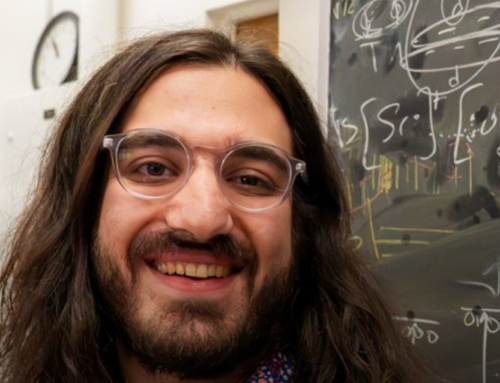In a new paper Robust encoding of a qubit in a molecule, Victor Albert, Jacob Covey and John Preskill describe a new approach to protecting qubits from noise. “People have been thinking about using molecules to encode information since 2001, but now we are showing how molecules, which are more complex than atoms, could lead to fewer errors in quantum computing.” Victor Albert

Figure 5 from the paper: Linear-rotor codes.
Read the Caltech media story A Molecular Approach to Quantum Computing “The appeal of molecules is that they are very complex structures that can be very densely packed,” says Covey. “If we can figure out how to utilize molecules in quantum computing, we can robustly encode information and improve the efficiency in which qubits are packed.”
Albert says that the trio of himself, Preskill, and Covey provided the perfect combination of theoretical and experimental expertise to achieve the latest results. He and Preskill are both theorists while Covey is an experimentalist. “It was really nice to have somebody like John to help me with the framework for all this theory of error-correcting codes, and Jake gave us crucial guidance on what is happening in labs.”
Says Preskill, “This is a paper that no one of the three of us could have written on our own. What’s really fun about the field of quantum information is that it’s encouraging us to interact across some of these divides, and Caltech, with its small size, is the perfect place to get this done.”
The paper is also a featured Synopsis selected by APS Protecting Molecular Qubits from Noise
Read the full paper Victor V. Albert, Jacob P. Covey, and John Preskill, Robust Encoding of a Qubit in a Molecule, Phys. Rev. X 10, 031050 (2020), Published September 1, 2020



